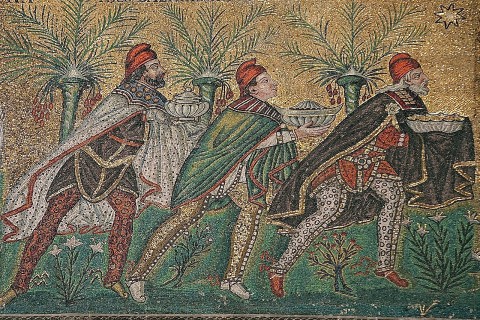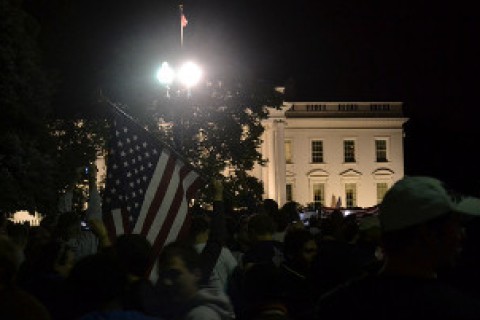Authors /
Miroslav Volf
Miroslav Volf teaches at Yale Divinity School, where he is founder and director of the Yale Center for Faith and Culture. He is the author of Flourishing: Why We Need Religion in a Globalized World (Yale University Press).
Six traits of a pluralist Christian vision of human flourishing
Can Christianity make universal claims without being exclusivist?
Rejoice in the Lord always—and especially in Lent
When we give something up, we realize that its goodness doesn't depend on our ownership of it.
Joy is for Epiphany, too
From the wise men to the wedding at Cana, joy comes from recognizing and affirming the good.
What is good? Joy and the well-lived life
"Look at the birds of the air," said Jesus. Our lives are more akin to the frantic scurrying of rats and the disciplined marching of ants.
What is good? Joy and the well-lived life
"Look at the birds of the air," said Jesus. Our lives are more akin to the frantic scurrying of rats and the disciplined marching of ants.
The giver and the gift: A Christian's delight in things
If the world is a gift, then all the things to which you relate—and many to which you don't—are also God's relation to you.
Life exam
In a culture that finds repentance unintelligible, impractical, or unnecessary, we are called to witness to its intelligibility, beauty, and importance.
All due respect: Honoring others
We should respect people with whom we disagree. Should we also respect their convictions, even when these comprise an overarching interpretation of life with which we fundamentally disagree?
Fear and relief
We are right to feel a sense of relief that a major source of evil has been removed. But we should reflect also on the flip side of that relief: the nature of our fears.
Allah and the Trinity: A Christian response to Muslims
The oneness of God is the principle at the very heart of Islam. This is the central issue for Muslims disputing Christian claims about God.
Free Newsletters
From theological reflections to breaking religion news to the latest books, the Christian Century's newsletters have you covered.
How safe can we be?
Unlike in previous eras, when the majority of our risks came from natural sources, today the majority of our risks are "manufactured." We humans create them.
Body counts: The dark side of Christian history
With its long coastline, rugged mountains and haunting sand dunes, Oman is a paradise for desert lovers, hikers and boaters. Muscat, the capital city, is a gem—its arched white buildings and flat roofs squeezed between the blue ocean and black mountains. Yet call me an egghead, but what I remember most from a trip to Oman is a booklet I read there with an ominous title: Body Count: A Quantitative Review of Political Violence Across World Civilizations (2009). In it, author Naveed Sheikh claims that “the Christian civilization emerges as the most violent and genocidal in the world history.” Compared to Islam, Christianity is a clear winner: 31.94 million deaths by Muslims to 177.94 million deaths by Christians.
No offense given: Commotion over caricatures
Early in October, Yale was abuzz with passionate debates about the freedom of expression....
Reluctant pilgrim: A visit to the Jordan
Since ancient times, travelers have journeyed to sites of religious significance in order to deepen their faith. But I’ve never been much of a pilgrim....
Sikh wisdom: India's Golden Temple
One of the most recognizable pieces of religious architecture in the world is the Golden Temple in Amritsar, India, the most significant place of worship of the Sikhs....










